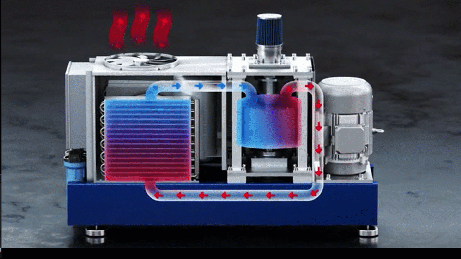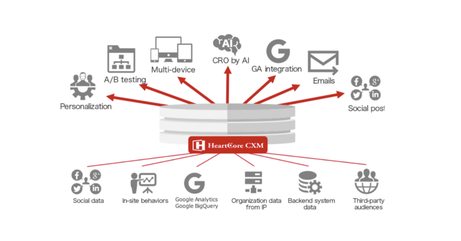-
Should Aging Be Treated As A Disease? And How One Company Might Be Shifting The Paradigm To Reverse It
Originally Published on Benzinga Technical advancements in stem cell therapies have reportedly shifted the outlook of regenerative medicine, and some scientists are getting increasingly excited. Cardiologist Dr. Joshua Hare is one of those scientists, and he’s both the co-founder and chief scientific officer of Longeveron Inc. (NASDAQ: LGVN), a clinical-stage biotechnology company developing cellular therapies for aging-related and life-threatening conditions. He’s also credited with helping to pioneer the use of stem cells as medicine for the human heart and regularly explores a future where regenerative medicine can prolong human life. The global regenerative medicine market is estimated to reach $6.49 billion in 2027, up 9.3% from $3.05 billion in 2019. …
-
Digital Transformation Of Emerging Markets Could Mean Continued Opportunity For Newly NASDAQ Listed Japanese Company
Previously published on Benzinga HeartCore Enterprises Inc. (NASDAQ: HTCR) is a software-as-a-service (SaaS) solutions provider and leading development company in the enterprise business sector. In February, the company was uplisted to the Nasdaq Stock Exchange and rang the opening bell. Last June, Founder and CEO Sumitaka Kanno was honored with the Top 100 Tech Innovators & Influencers Award at InterCon Las Vegas for his significant and tangible contributions to the world of technology. HeartCore already held the largest market share in Japan for six straight years. It All Started With A Vision Founded in 2009, HeartCore (formerly XyXon Inc.) entered the market with its cornerstone HeartCore CMS rich content management…
-
CXM Software Creator Just Uplisted Last Month — Here’s What You May Want To Know
Previously Published on Benzinga HeartCore Enterprises Inc. (NASDAQ: HTCR) is a software-as-a-service (SaaS) solutions company that says it believes in making its customers and employees happy. The focus of many of its products is based on knowing the customer. When listing the three steps for successful digital marketing, HeartCore states that it emphasizes the need to know your customers, support them and keep them engaged. Who Is HeartCore Enterprises, Anyway? Headquartered in Tokyo, Japan, with offices in San Francisco, HeartCore Enterprises is a software development company in the enterprise business sector. The company booked $11 million in revenue for the 12 months ending on Sept. 30. On Feb. 9, it announced a $15 million…
-
Biotricity Reports Q1 Earnings at 290% for FY2022
Previously Published to Benzinga: The following post was written and/or published as a collaboration between Benzinga’s in-house sponsored content team and a financial partner of Benzinga. Biotricity (NASDAQ: BTCY) has been taking the world of medtech by storm, introducing primary care providers across the country to its remote heart monitoring devices. Always connected, these wearable devices have been giving power back to those suffering from chronic cardiac conditions and simultaneous comorbidities — the simultaneous presence of two or more diseases or medical conditions and often relative of one another. Through remote heart monitoring and diagnostic technologies, doctors can screen their patients from a distance, even alerted to a possible emergency if the…
-
NASA-Approved Technologies Essential to Creating Cooler, Lighter and Safer Batteries for EV, Aeronautics and Smart Device Technologies
Previously Published to Benzinga: The following post was written and/or published as a collaboration between Benzinga’s in-house sponsored content team and a financial partner of Benzinga. A few years ago, it seemed almost daily that the news reported an exploded device. A company was scrutinized for not doing its due diligence before releasing such a dangerous product to the public. Hoverboards, smartphones and laptops caught on fire, burning people in their sleep, or unexpectedly catching them off guard. In most cases, the explosion wasn’t due to a manufacturing error. The cause was most often from shrinking device size, which spurred a race to have the smallest, most effective device on…

















